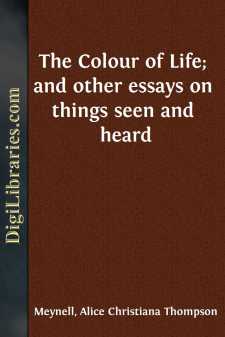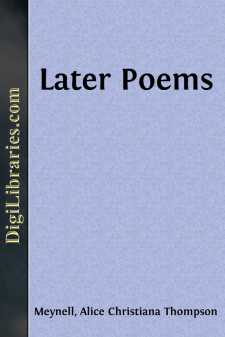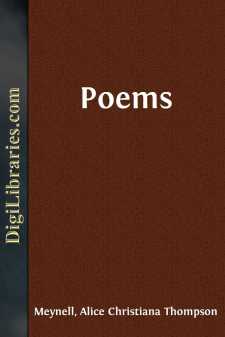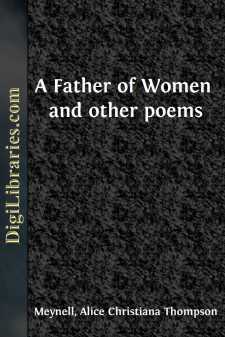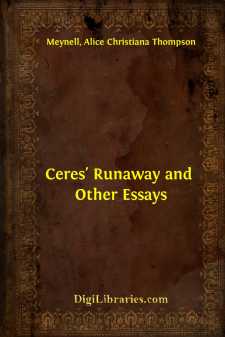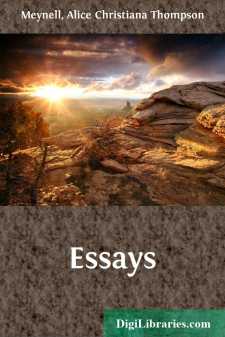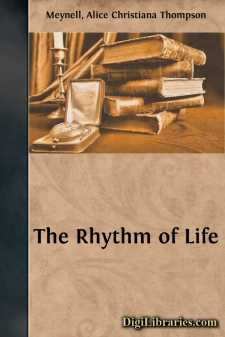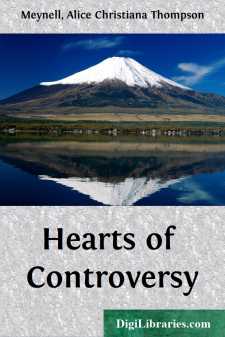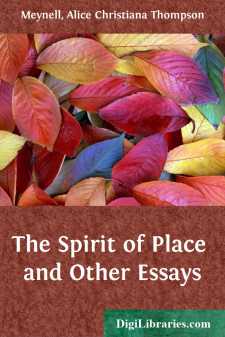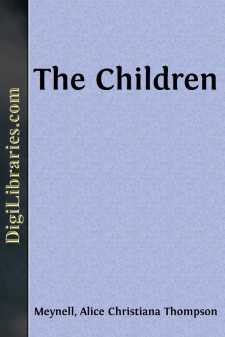Categories
- Antiques & Collectibles 13
- Architecture 36
- Art 48
- Bibles 22
- Biography & Autobiography 813
- Body, Mind & Spirit 142
- Business & Economics 28
- Children's Books 17
- Children's Fiction 14
- Computers 4
- Cooking 94
- Crafts & Hobbies 4
- Drama 346
- Education 46
- Family & Relationships 57
- Fiction 11829
- Games 19
- Gardening 17
- Health & Fitness 34
- History 1377
- House & Home 1
- Humor 147
- Juvenile Fiction 1873
- Juvenile Nonfiction 202
- Language Arts & Disciplines 88
- Law 16
- Literary Collections 686
- Literary Criticism 179
- Mathematics 13
- Medical 41
- Music 40
- Nature 179
- Non-Classifiable 1768
- Performing Arts 7
- Periodicals 1453
- Philosophy 64
- Photography 2
- Poetry 896
- Political Science 203
- Psychology 42
- Reference 154
- Religion 513
- Science 126
- Self-Help 84
- Social Science 81
- Sports & Recreation 34
- Study Aids 3
- Technology & Engineering 59
- Transportation 23
- Travel 463
- True Crime 29
The Colour of Life; and other essays on things seen and heard
Categories:
Description:
Excerpt
THE COLOUR OF LIFE
Red has been praised for its nobility as the colour of life. But the true colour of life is not red. Red is the colour of violence, or of life broken open, edited, and published. Or if red is indeed the colour of life, it is so only on condition that it is not seen. Once fully visible, red is the colour of life violated, and in the act of betrayal and of waste. Red is the secret of life, and not the manifestation thereof. It is one of the things the value of which is secrecy, one of the talents that are to be hidden in a napkin. The true colour of life is the colour of the body, the colour of the covered red, the implicit and not explicit red of the living heart and the pulses. It is the modest colour of the unpublished blood.
So bright, so light, so soft, so mingled, the gentle colour of life is outdone by all the colours of the world. Its very beauty is that it is white, but less white than milk; brown, but less brown than earth; red, but less red than sunset or dawn. It is lucid, but less lucid than the colour of lilies. It has the hint of gold that is in all fine colour; but in our latitudes the hint is almost elusive. Under Sicilian skies, indeed, it is deeper than old ivory; but under the misty blue of the English zenith, and the warm grey of the London horizon, it is as delicately flushed as the paler wild roses, out to their utmost, flat as stars, in the hedges of the end of June.
For months together London does not see the colour of life in any mass. The human face does not give much of it, what with features, and beards, and the shadow of the top-hat and chapeau melon of man, and of the veils of woman. Besides, the colour of the face is subject to a thousand injuries and accidents. The popular face of the Londoner has soon lost its gold, its white, and the delicacy of its red and brown. We miss little beauty by the fact that it is never seen freely in great numbers out-of-doors. You get it in some quantity when all the heads of a great indoor meeting are turned at once upon a speaker; but it is only in the open air, needless to say, that the colour of life is in perfection, in the open air, “clothed with the sun,” whether the sunshine be golden and direct, or dazzlingly diffused in grey.
The little figure of the London boy it is that has restored to the landscape the human colour of life. He is allowed to come out of all his ignominies, and to take the late colour of the midsummer north-west evening, on the borders of the Serpentine. At the stroke of eight he sheds the slough of nameless colours—all allied to the hues of dust, soot, and fog, which are the colours the world has chosen for its boys—and he makes, in his hundreds, a bright and delicate flush between the grey-blue water and the grey-blue sky. Clothed now with the sun, he is crowned by-and-by with twelve stars as he goes to bathe, and the reflection of an early moon is under his feet.
So little stands between a gamin and all the dignities of Nature. They are so quickly restored. There seems to be nothing to do, but only a little thing to undo. It is like the art of Eleonora Duse. The last and most finished action of her intellect, passion, and knowledge is, as it were, the flicking away of some insignificant thing mistaken for art by other actors, some little obstacle to the way and liberty of Nature....


